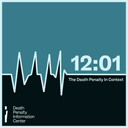
The California Supreme Court heard oral argument on June 2, 2021 in a capital case whose outcome could affect the fate of hundreds of prisoners on the state’s death row. Supported by friend-of-the-court briefs by California Governor Gavin Newsom and an alliance of progressive California district attorneys, lawyers for death row prisoner Don’te McDaniel argued to the court that California’s capital sentencing scheme is unconstitutional because it fails to require that capital sentencing juries reach a unanimous determination of each of the aggravating factors in a case that justify imposing a death sentence and do so beyond a reasonable doubt.
Though a seemingly technical issue, it has a potentially huge impact. Currently, California has 703 prisoners on death row — which is by far the most in the nation. Depending on how the court rules, and if it applies the decision to other cases that have already completed direct appeal, it could reverse hundreds of California death sentences.
The United States Supreme Court ruled in June 2002 in Ring v. Arizona that the Sixth Amendment guarantees capital defendants the right to a jury trial, including the right to require the government to persuade jurors unanimously and beyond a reasonable doubt of all facts that are essential to the decision to impose the death penalty. McDaniel has argued that the California constitution requires a similar standard with respect to the jury’s sentencing determination.
Arguing for McDaniel, deputy public defender Elias Batchelder told the court, “When criminal juries make fundamental decisions … these decisions are held to the law’s highest standards, beyond a reasonable doubt and by a unanimous vote.” Those high standards are even more important in death penalty cases, he said, because “[a]s a society, we do not want people to be wrongfully executed.”
Deputy Attorney General Dana Muhammad Ali argued that the ultimate determination of whether to impose the death penalty in a given case is “not a question of fact,” like the determination of a defendant’s guilt, but a moral decision on “whether death is the appropriate punishment.” While she conceded that the unanimity and beyond-a-reasonable-doubt standards would make death sentences “more reliable,” she said they are not required by California’s constitution.
Governor Gavin Newsom, who has imposed a moratorium on executions in California, submitted an amicus brief in support of McDaniel. He urged the state supreme court to require juries to unanimously agree on aggravating factors, and to find them beyond a reasonable doubt. He said that doing so would reduce racial bias in the sentencing process. During argument, Batchelder cited the governor’s brief, saying, “The governor’s amicus brief discussed the highly coercive, sometimes racially fraught pressures that manifest in the jury room. For a variety of reasons, jurors sometimes have strong doubts about the propriety of a death verdict, and the reasonable doubt protection safeguards the voices of minority jurors in this coercive environment. There is ample empirical evidence that it not only ensures more thoughtful, but more respectful deliberation.” Several California District Attorneys, including those from Los Angeles and San Francisco, also filed briefs favoring the higher standards.
An editorial in the Los Angeles Times urged the court to reverse McDaniel’s sentence and “throw out the entire system.” “Beyond being skewed by racism, the system is poisoned by human error and occasionally malfeasance,” the editorial argued. “It is as flawed as society itself, and it requires a level of willful blindness to not recognize that. It cannot be fixed.”
Recent polling by the Berkeley Institute of Governmental Studies found that pluralities of Californians support Governor Newsom’s moratorium and the idea of repealing the death penalty. Nearly half (48%) of voters said they support the moratorium on executions, while 33% were opposed, and 19% had no opinion. Similarly, 44% said they would vote to repeal the state’s death penalty law, compared to 35% who said they would vote to keep it. However, more than one-fifth (21%) of voters were undecided on whether to keep or repeal the death penalty. Referenda to abolish California’s death penalty failed in 2012 (48% – 52%) and 2016 (46% – 54%), but neither enjoyed the backing of a sitting governor.
Bob Egelko, California Supreme Court considers standards used by juries to impose death sentences, San Francisco Chronicle, June 2, 2021; Maura Dolan, California’s top court weighs overturning hundreds of death penalty sentences, Los Angeles Times, June 3, 2021; Editorial Board, California Supreme Court should look beyond this case and end capital punishment, Los Angeles Times, June 3, 2021; Allen Martin, California Supreme Court Hears Case That Could Impact Future Of Death Penalty, KPIX CBS‑5, San Francisco Bay Area, June 2, 2021; Maria Dinzeo, California High Court Takes Up Death Penalty Challenge, Courthouse News Service, June 2, 2021; Rosalio Ahumada, California Supreme Court to hear case that could lead to death penalty reversals, Sacramento Bee, June 1, 2021; Emily Hoeven, Death penalty faces critical test: Will California high court raise bar?, Cal Matters, 2021; Mark DiCamillo, Plurality of Voters Support Constitutional Amendment to Repeal the State’s Death Penalty, Although Many are Undecided., Berkeley IGS Poll, May 20, 2021; Berkeley IGS Poll, Tabulations from a Late-April-Early May 2021 Survey of California Registered Voters About Voter Views About Repealing The State’s Death Penalty Law, Institute of Governmental Studies, University of California, Berkeley, April 29 – May 5, 2021.



